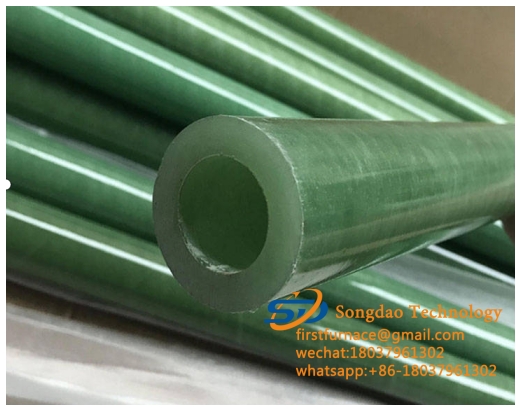- 10
- Nov
Vantaggi del tubo in fibra di vetro epossidico
Vantaggi del tubo in fibra di vetro epossidico
Epoxy glass fiber tube is formed by impregnating electrical grade alkali-free glass fiber cloth with resin through a mold. It is mainly used as insulation parts in electronic equipment. Epoxy glass fiber tube has very low requirements for the environment in which it is used. It can work normally in dry, hot and humid places. The 21st century is the era of electronics, and more and more epoxy fiberglass tubes are used. This article will tell you about the advantages of epoxy fiberglass tubes.
1. High temperature resistance. The high temperature resistance grade of ordinary epoxy glass fiber pipe is Class B, that is, 155°C, and some performances are particularly good, for example, the model G11 can reach 180°C. Because it is used in electronic products, high temperature resistance is a necessary condition.
2. Good dielectric properties. Epoxy glass fiber tube is an insulating material. The parallel layer breakdown voltage is ≥40KV. It can be used in high-power electrical appliances. It is not easy to be broken down by voltage after long-term continuous operation.
3. Good mechanical properties. Epoxy glass fiber tube has high strength, fatigue resistance, good endurance, and no deformation due to twists and turns
4. Strong plasticity. The epoxy glass fiber tube has various processing methods, which can be cut, ground, and punched. It has strong plasticity. As long as there is a drawing, it can be manufactured into the required style.
5. Environmental protection. The development of industry has also accelerated the discharge of sewage and waste gas. We must develop industry on the basis of protecting the environment. The halogen-free epoxy glass fiber tube does not contain toxic substances, which cleans the environment and also ensures the health of users. Regarding acid, alkali, salt, oil, alcohol and other chemical substances, epoxy glass fiber tube also has a certain adaptability, and it will be affected when it is particularly corrosive.

